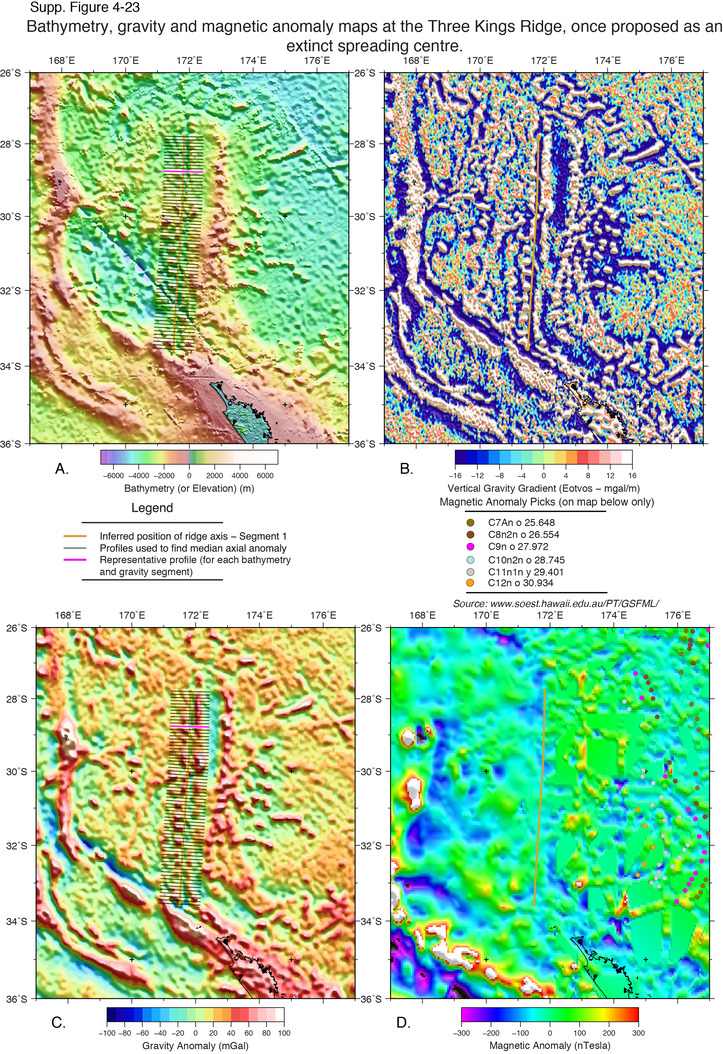| Ocean: | Marginal basin |
| Spreading center type: | Unlikely to represent an extinct ridge |
Although one early study proposed that the Three Kings Ridge could represent an extinct spreading centre (van der Linden, 1969), subsequent regional studies and available data support formation of the ridge as a volcanic arc, formed adjacent to an active subduction zone that has since become inactive. Dredge samples and geochemical evidence supports an arc origin (Mortimer et al., 1998; Kroenke and Eade, 1982; Kroenke and Dupont, 1982). Although the ridge has a linear, negative gravity anomaly at its centre, the morphology of the ridge and form of the gravity anomaly in profiles across the axis are sufficiently asymmetric to suggest an alternative mode of formation (see profiles below).
Kroenke, L. W. and Eade_1982, Three Kings Rise: a west facing arc, Geo-Marine Letters, v. 2, pp. 5-10.
Kroenke, L. W. and Dupont, J., 1982, Subduction-obduction: a possible north-south transition along the west flank of the Three Kings Ridge, Geo-Marine Letters, v. 2, pp. 11-16.
Mortimer, N., Herzer, R. H., Gans, P. B., Parkinson, D. L. and Seward, D., 1998, Basement geology from Three Kings Ridge to West Norfolk Ridge, southwest Pacific Ocean: evidence from petrology, geochemistry and isotopic dating of dredge samples, Marine Geology, v. 148, p. 135 – 162.
van der Linden, W. J. M, 1969, Extinct mid-ocean ridges in the Tasman Sea and in the western Pacific, Earth and Planetary Science Letters, v. 6, p. 483-490.


